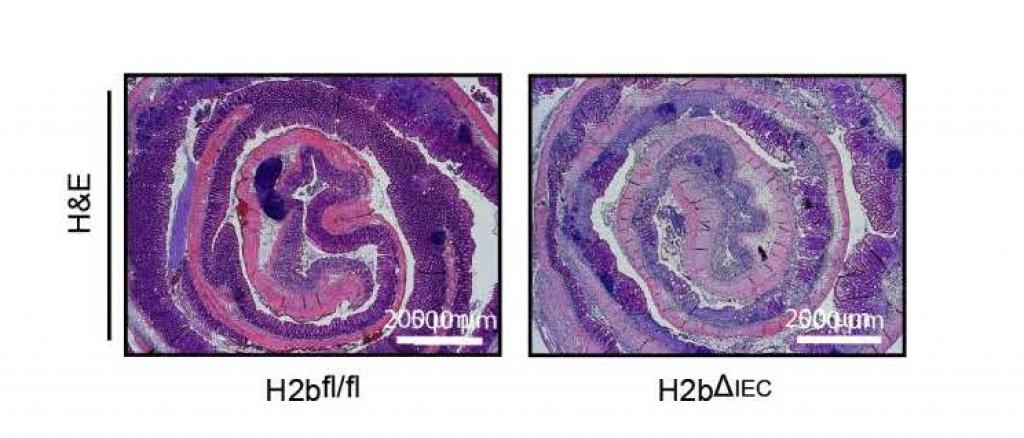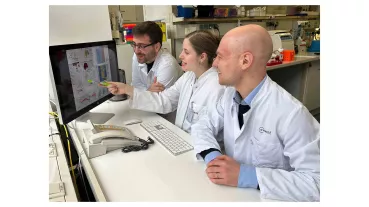Atg16l1-mediated autophagy as a critical instructor of DNA damage responses in intestinal inflammation and carcinogenesis

Inflammatory bowel diseases (IBD) are chronic relapsing-remitting inflammatory disorders of the human gut with rising incidence worldwide, comprising the two clinical entities ulcerative colitis (UC) and crohn`s disease (CD). Chronicity, longterm adherence to medical treatment and the lack of causative treatments are among the factors that explain the high individual burden of disease. Genome-wide association studies have identified ATG16L1 as a risk gene
for CD. The exact role of ATG16L1 in contributing to disease manifestation is not entirely understood. DNA damage arises from chronic exposure to toxic stimuli that are elicited in response to inflammation and is a reported phenomenon in patients with IBD. However, to which extent Atg16l1-mediated autophagy interacts with epithelial DNA damage response to fine tune intestinal inflammatory conditions is not known. The aim of this study is to dissect the role of epithelial DNA Damage in the manifestation of chronic intestinal inflammation and
to assess the licencing function of Atg16l1-mediated autophagy on cellular DNA damage responses and its implications on intestinal inflammation and tumorigenesis.
Here you can get futher information.




